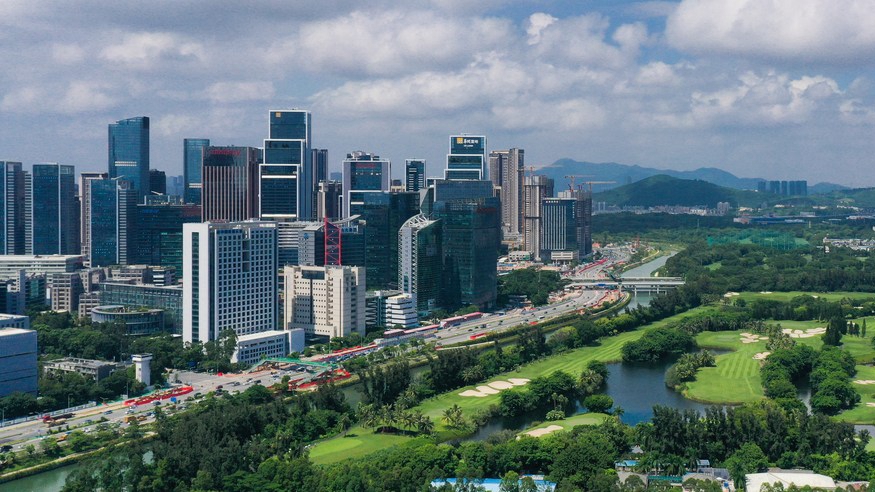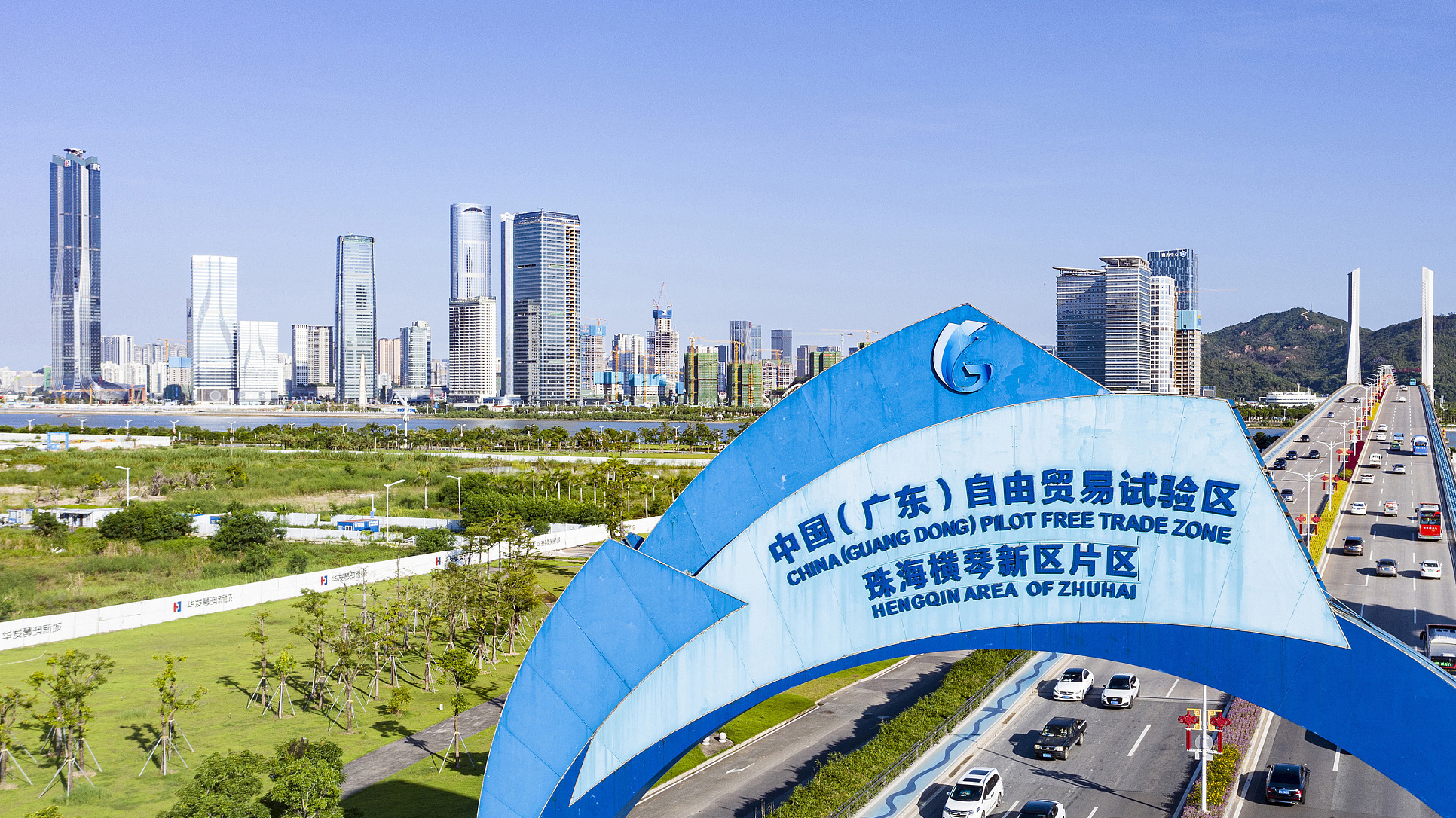
The science and technology park along the bank of the Dasha River in the Nanshan District of Shenzhen, south China's Guangdong Province, September 27, 2020. /Xinhua
The science and technology park along the bank of the Dasha River in the Nanshan District of Shenzhen, south China's Guangdong Province, September 27, 2020. /Xinhua
Editor's note: The Two Sessions, a major event on the Chinese political calendar, is underway. We've invited experts from various fields to write articles about hot issues that help us better understand today's China. This is the fifth piece of our "China's Road to Development" series. Alexandr Svetlicinii is an associate professor of law at the University of Macao, where he also serves as program coordinator for the Master of Law in International Business Law in English Language. The article reflects the author's opinions, and not necessarily the views of CGTN.
March 4 marks the commencement of China's annual Two Sessions. Among the most important issues that will be discussed this year is the trajectory of the economic development to ensure stability in the turbulent times when the world has not yet recovered from the economic recession caused by the COVID-19 pandemic while being hit by new economic disruptions fueled by the Russia-Ukraine conflict and related economic sanctions.
The present note discusses the development prospects for the Guangdong-Hong Kong-Macao Greater Bay Area (GBA) that could be supported by the policy decisions and legislative instruments to be taken during the Two Sessions.
The development of the GBA was formulated in 2015 as a part of a wider Belt and Road Initiative containing a range of economic connectivity projects. In 2019, the central government released the outline development plan for the GBA, which identified the unique strengths of each GBA region.
For example, the plan emphasized the Macao Special Administrative Region's role as a tourism and leisure center as well as a platform for economic cooperation between China and Portuguese-speaking countries. The unique strengths of the Hong Kong Special Administrative Region (HKSAR) as an international shipping and aviation hub, as well as a global financial center were also considered in the design of the GBA cooperation platforms.
Unfortunately, people-to-people exchanges within the GBA have been severely restricted due to the COVID-19 pandemic. As the HKSAR has pursued a more relaxed pandemic containment policy, it resulted in sporadic outbreaks and temporary lockdowns. Macao, on the other hand, has managed to preserve its undisrupted people-to-people exchanges with the Chinese mainland by closely aligning its pandemic containment policy with that of the central government.
The recent wave of the Omicron variant of the coronavirus in the HKSAR demonstrated that without substantial changes in the containment policy, the opening up of that SAR towards the other parts of the GBA will be untenable.
While the resumption of people-to-people exchanges within the GBA will depend to a large degree on the ability of the HKSAR government to contain the pandemic, the Two Sessions are also expected to contribute to a healthy GBA. One of the legislative proposals provides for the recognition of vaccine types and vaccination certificates among the GBA regions, which will greatly facilitate travel for businessmen and others who live and work in the GBA.
When it comes to Macao, the tourism and gaming industries will continue to be affected by the travel disruptions caused by the epidemic-related containment measures. As a result, the local government is continuously looking for alternative industries that could be further developed in the SAR and thus improve the employment prospects and the well-being of local residents.
The economic diversification of Macao was accelerated in 2021 when the central government released general plans for building a Guangdong-Macao in-depth cooperation zone in Hengqin. The plan envisioned the diversification of the Macao economy by developing five nascent industries: scientific and technological research, traditional Chinese medicine (TCM), tourism, convention and exhibition services, and modern financial services.

Guangdong-Macao in-depth cooperation zone in Hengqin, Zhuhai, south China's Guangdong Province, China, August 17, 2021. /CFP
Guangdong-Macao in-depth cooperation zone in Hengqin, Zhuhai, south China's Guangdong Province, China, August 17, 2021. /CFP
The establishment of the TCM Science and Technology Industrial Park in Hengqin is expected to streamline registration of TCM products overseas in order to enhance their intellectual property protection and regulatory compliance.
The cooperation zone in Hengqin highlights the functionality of the "one country, two systems" model by experimenting with the joint governance mode and approximation of the rules and regulations between Guangdong Province and Macao SAR. As a result, the enterprises established in Hengqin will be able to benefit from the preferential taxation policy, registration and licensing facilitation, integrated administrative services, dedicated subsidization of certain expenses, etc.
In that regard, the decisions taken during the Two Sessions in relation to the taxation policy and the relief measures for small and medium-size enterprises could further improve the business environment in the GBA.
All of the above examples demonstrate the importance of connectivity and synchronized economic development of the three GBA regions. Their synchronization is taking part under the "one country, two systems" policy that provides for coordination and support of the central government while preserving and further development the unique characteristics of each region.
Correspondingly, the deliberations at the Two Sessions, which include representatives of the HKSAR and Macao SAR, are expected to result in further support and coordination measures for the development of a healthy GBA.
(If you want to contribute and have specific expertise, please contact us at opinions@cgtn.com. Follow @thouse_opinions on Twitter to discover the latest commentaries in the CGTN Opinion Section.)

